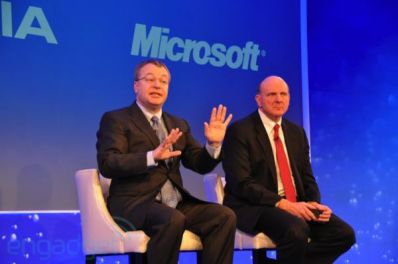
“I’m not aware of a strategic interest that Microsoft would have in the rest of the business,” Elop said to Reuters. “To the extent that a partnership has been formed around what they’re really interested in, then what would an acquisition bring other than a good year of anti-trust investigation, huge turmoil, delays?”
[aditude-amp id="flyingcarpet" targeting='{"env":"staging","page_type":"article","post_id":249553,"post_type":"story","post_chan":"none","tags":null,"ai":false,"category":"none","all_categories":"business,mobile,","session":"B"}']Elop has a point. By partnering with Nokia to be its flagship Windows Phone 7 device maker, Microsoft already has what it needs from Nokia without the headache of fixing its internal problems. And you can bet that European regulators wouldn’t have taken too kindly to Microsoft completely gobbling up one of Europe’s biggest companies.
Microsoft is reportedly paying Nokia $1 billion over five years to become a Windows Phone shop. Nokia will also pay Microsoft a fee for every copy of Windows on its phones (so basically, every phone). But Nokia will also be saving quite a bit of money that it otherwise would have been spending on software research and development.
AI Weekly
The must-read newsletter for AI and Big Data industry written by Khari Johnson, Kyle Wiggers, and Seth Colaner.
Included with VentureBeat Insider and VentureBeat VIP memberships.
Elop also confirmed that Nokia workers are currently hard at work at the company’s first Windows Phone devices. “If this was an acquisition scenario, that wouldn’t be possible,” he said.
Elop previously said he hopes to have a Windows Phone 7 device from Nokia out by the end of the year.
VentureBeat's mission is to be a digital town square for technical decision-makers to gain knowledge about transformative enterprise technology and transact. Learn More
